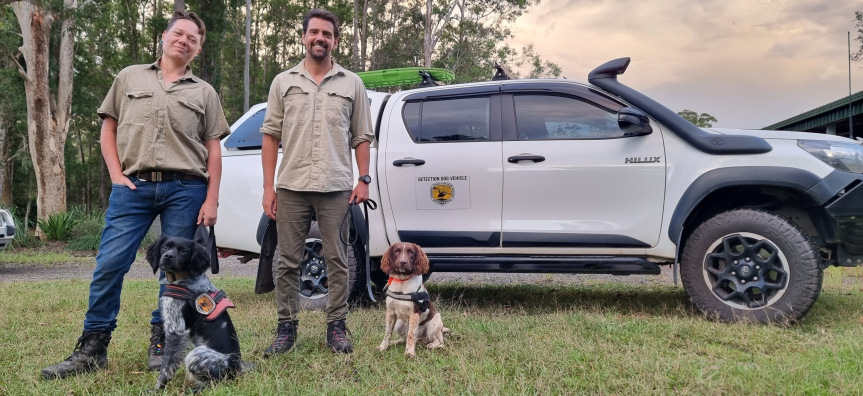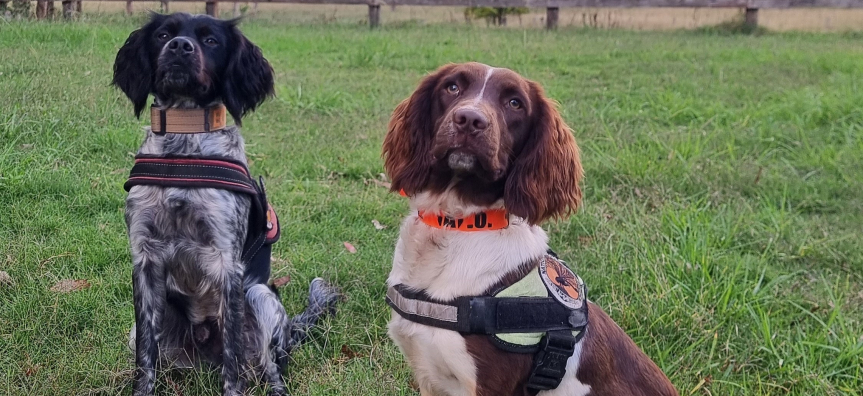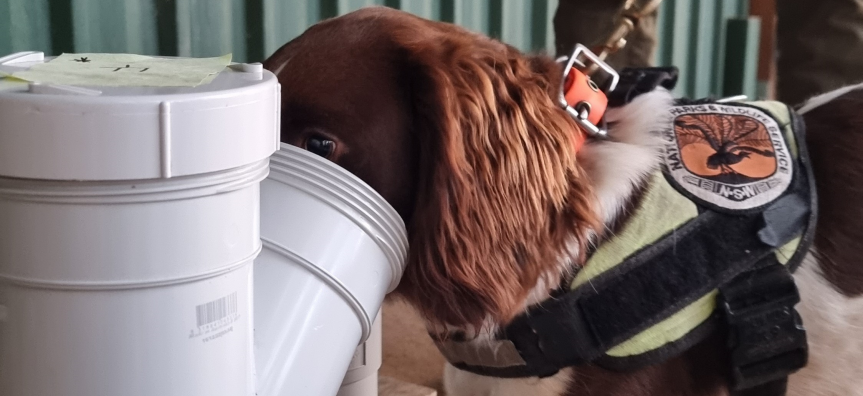It’s a ruff day to be a plant pathogen, with Alice and Echo, a dynamic scent-detection-duo, ready to follow their noses and help protect native vegetation in NSW from Phytophthora (pronounced fi-toff-rah) dieback.
The soil pathogen has infected thousands of native plant species in Australia, resulting in permanent damage to ecosystems and destroying habitat for native wildlife.
Northern Beaches Council has partnered with National Parks and Wildlife Service (NPWS) Invasive Species Unit to stop the spread of the soil borne pathogen by donating Phytophthora free tube-stock to the University of Sydney which was then infected by their plant pathologist with the disease.
Kicking off the program in mid-2022 NPWS wanted to see if conservation detection dogs could be trained to detect Phytophthora and prevent new infestations to protect threatened species like the critically endangered Caley’s grevillea (Grevillea caleyi) here on the Northern Beaches.
With the expertise of TATE Animal Training Services and two of their newest dogs – Alice, a Springer Spaniel and Echo, a Brittany Spaniel, the dogs have been successful in sniffing out the deadly pathogen in controlled trials using the tube stock.
Alice and Echo can now confidently discriminate Phytophthora cinnamomi-infected tube stock from non-infected plants and are learning how to detect it in dormant in soil, as well as on vehicles, clothing and cutting equipment.
The work so far shows there’s huge potential for conservation dogs to help prevent the spread of this devastating disease in NSW, particularly in high-risk pathways like national parks, nurseries, and as part of bush regeneration projects, ensuring that sites and materials are Phytophthora-free.
For more information about the project visit the NPWS website.
The two-year collaborative project involved staff from the NSW National Parks and Wildlife Service, TATE Animal Training Enterprises, the University of Sydney, Botanic Gardens of Sydney’s PlantClinic, Northern Beaches Council and the NSW Department of Planning and Environment.



